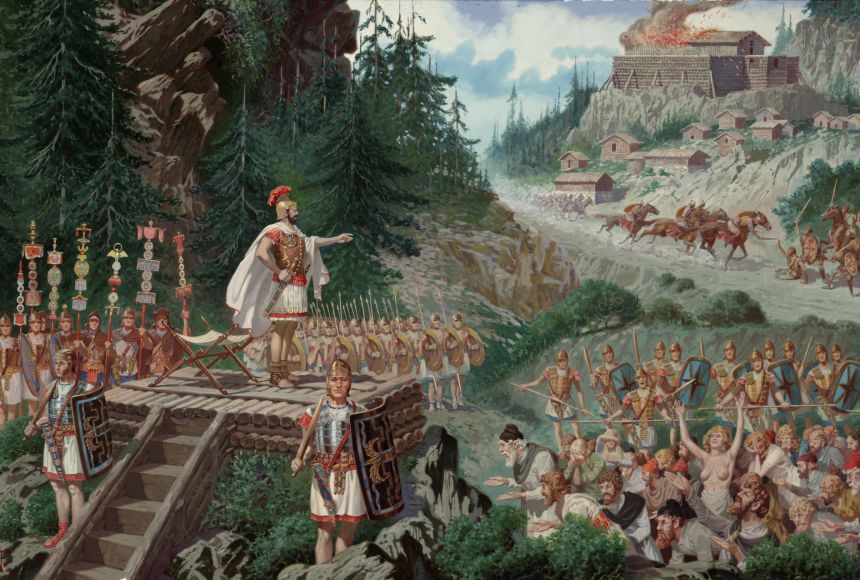Browse By Unit
3.5 Historical Causes of Cultural Diffusion
3 min read•june 18, 2024
Danna Esther Gelfand
Danna Esther Gelfand
The diffusion of religion, and language, in addition to other aspects of culture, is historically caused by mass migrations, travel, colonization, ostracism, inter-group communication, and interactions among people. It allowed for the creation of simplified language interconnectedness demonstrated by the developments of Lingua francas, creolization, etc.
Colonialism
Colonialism is defined as an attempt by one country to establish settlements and to impose its political, economical, and cultural principles in another territory. Colonialism is a violent form of cultural diffusion.
Here's an example: Christianity started in Israel but is now practiced all over the world, initially spread by the Roman Empire. Through missionaries that spread religious beliefs, Christianity is one of the universalizing religions practiced worldwide.
Christians also practiced forced diffusion using violent means to spread Christianity throughout Europe and also in the Americas. The cultural diffusion of Christianity amongst Native Americans in America was often through legal coercion, with tribes given ultimatums that they can only "own" their tribal territory if they participate in Christianity. Populations of Spanish, French, English, and Portuguese imperialists and colonialists imperialized regions of the American Sub-Continent.

image courtesy of change.org
Trade
The trading of goods by merchants also allowed cultural diffusion. In order to communicate with traders and consumers, common languages were developed to increase interconnectedness. Trade routes are centers of more people, which means more cultures coming together. The establishment of trading routes such as the Silk Road led to further trading and communication connections to arise.

image courtesy of econlib.com
War and Conquest
War and conquest helped diffuse culture generally in two ways. Through the imposition of the conquering people's culture on those who have been conquered, and through the fleeing of those being conquered, and mixing their culture where they end up. When an empire conquers another, they force its religion, language, governance systems, and other cultural practices onto the people they conquer. This often suppresses the people who are being conquered, and their culture either assimilates into a new one or almost entirely disappears. The other option is when people flee because their home is being taken over, and they bring their culture and practices with them.

image courtesy of the national geographic society
Technology and Communication Advancements
Technology and communication advancements have played a significant role in the historical diffusion of culture by allowing for the rapid exchange of ideas and information across large distances.
For example, the invention of the printing press in the 15th century allowed for the mass production of books and other written materials, making it easier for people to access and share knowledge and ideas. This led to the spread of new religious and scientific ideas, as well as the dissemination of literary and artistic works.
The telegraph and telephone in the 19th century allowed for faster communication and the exchange of information between people, which facilitated the spread of news, ideas, and cultural practices. The internet and digital technologies in the 20th century have exponentially expanded the reach and speed of communication, enabling the sharing of information and ideas on a global scale.
In addition, transportation advancements such as the steam engine and the airplane enabled people to travel more easily, facilitating the movement of people and the exchange of cultural practices and ideas.

image courtesy of HumanProgress
Environmental and Ecological Factors
Environmental factors can cause an individual to have to relocate or change their culture based on which resources are available and how they can use those resources. A lot of farming techniques are decided based on the area and climate of a certain region, and then through trade and migration, these cultural practices are spread.

image courtesy of european environment agency
🎥 Watch: AP HUG - All About Diffusion
<< Hide Menu
3.5 Historical Causes of Cultural Diffusion
3 min read•june 18, 2024
Danna Esther Gelfand
Danna Esther Gelfand
The diffusion of religion, and language, in addition to other aspects of culture, is historically caused by mass migrations, travel, colonization, ostracism, inter-group communication, and interactions among people. It allowed for the creation of simplified language interconnectedness demonstrated by the developments of Lingua francas, creolization, etc.
Colonialism
Colonialism is defined as an attempt by one country to establish settlements and to impose its political, economical, and cultural principles in another territory. Colonialism is a violent form of cultural diffusion.
Here's an example: Christianity started in Israel but is now practiced all over the world, initially spread by the Roman Empire. Through missionaries that spread religious beliefs, Christianity is one of the universalizing religions practiced worldwide.
Christians also practiced forced diffusion using violent means to spread Christianity throughout Europe and also in the Americas. The cultural diffusion of Christianity amongst Native Americans in America was often through legal coercion, with tribes given ultimatums that they can only "own" their tribal territory if they participate in Christianity. Populations of Spanish, French, English, and Portuguese imperialists and colonialists imperialized regions of the American Sub-Continent.

image courtesy of change.org
Trade
The trading of goods by merchants also allowed cultural diffusion. In order to communicate with traders and consumers, common languages were developed to increase interconnectedness. Trade routes are centers of more people, which means more cultures coming together. The establishment of trading routes such as the Silk Road led to further trading and communication connections to arise.

image courtesy of econlib.com
War and Conquest
War and conquest helped diffuse culture generally in two ways. Through the imposition of the conquering people's culture on those who have been conquered, and through the fleeing of those being conquered, and mixing their culture where they end up. When an empire conquers another, they force its religion, language, governance systems, and other cultural practices onto the people they conquer. This often suppresses the people who are being conquered, and their culture either assimilates into a new one or almost entirely disappears. The other option is when people flee because their home is being taken over, and they bring their culture and practices with them.

image courtesy of the national geographic society
Technology and Communication Advancements
Technology and communication advancements have played a significant role in the historical diffusion of culture by allowing for the rapid exchange of ideas and information across large distances.
For example, the invention of the printing press in the 15th century allowed for the mass production of books and other written materials, making it easier for people to access and share knowledge and ideas. This led to the spread of new religious and scientific ideas, as well as the dissemination of literary and artistic works.
The telegraph and telephone in the 19th century allowed for faster communication and the exchange of information between people, which facilitated the spread of news, ideas, and cultural practices. The internet and digital technologies in the 20th century have exponentially expanded the reach and speed of communication, enabling the sharing of information and ideas on a global scale.
In addition, transportation advancements such as the steam engine and the airplane enabled people to travel more easily, facilitating the movement of people and the exchange of cultural practices and ideas.

image courtesy of HumanProgress
Environmental and Ecological Factors
Environmental factors can cause an individual to have to relocate or change their culture based on which resources are available and how they can use those resources. A lot of farming techniques are decided based on the area and climate of a certain region, and then through trade and migration, these cultural practices are spread.

image courtesy of european environment agency
🎥 Watch: AP HUG - All About Diffusion

© 2025 Fiveable Inc. All rights reserved.